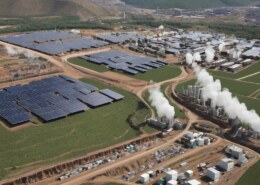Reducing green house gases is a task that is being taken seriously by all levels of government at global levels, even the big companies, are targeting to go net zero by 2030, to come close to environmental justice and as well as to reduce the green house gas emissions, to reduce the green house gaseRead more
Reducing green house gases is a task that is being taken seriously by all levels of government at global levels, even the big companies, are targeting to go net zero by 2030, to come close to environmental justice and as well as to reduce the green house gas emissions, to reduce the green house gases, we need to work together at all levels, so let’s see how we can control the greenhouse gases effect at different levels in order to achieve the goal. If we talk about local level, many countries are promoting public transport as the means to travel around the city, so we can reduce the emissions from the vehicles, for example Germany and Japan are stakeholders at promoting public transport at a high level to reduce green house gas emissions. Now if we talk about national level, we should invest in renewable energy sources such as wind, solar etc. Now finally coming to global level, every country should participate in and adhere to the international climate agreements like the Paris convention, developing countries are given more freedom in producing emissions as they are at developing stage in these agreements and developed nations have to support it.
See less

Climate change is likely to significantly impact future jobs in many areas, affecting various sectors including agriculture. Rising temperatures and unpredictable weather patterns can reduce labour productivity as extreme heat and increased frequency of natural disasters make working conditions moreRead more
Climate change is likely to significantly impact future jobs in many areas, affecting various sectors including agriculture. Rising temperatures and unpredictable weather patterns can reduce labour productivity as extreme heat and increased frequency of natural disasters make working conditions more challenging. This in turn affects outputs and incomes, especially in agriculture where crop yields can be severely diminished. As diverse sectors grapple with these changes, there may be a shift towards jobs focused on sustainability and climate resilience, such as renewable energy, environmental management, and climate adaptation planning. Ultimately, climate change will necessitate a transformation in the job market to address and mitigate its impacts.
See less